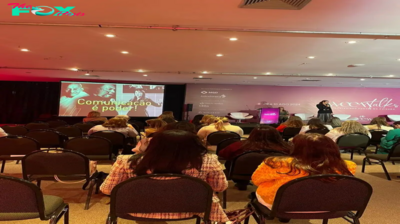Entertainment
A satisfying and sometimes transferring Tristan und Isolde at Bayreuth – Seen and Heard Worldwide

 Germany Bayreuth Pageant 2024 [3] – Wagner, Tristan und Isolde: Soloists, Bayreuth Pageant Refrain and Orchestra / Semyon Bychkov (conductor). Festspielhaus, Bayreuth, 3.8.2024. (MB)
Germany Bayreuth Pageant 2024 [3] – Wagner, Tristan und Isolde: Soloists, Bayreuth Pageant Refrain and Orchestra / Semyon Bychkov (conductor). Festspielhaus, Bayreuth, 3.8.2024. (MB)
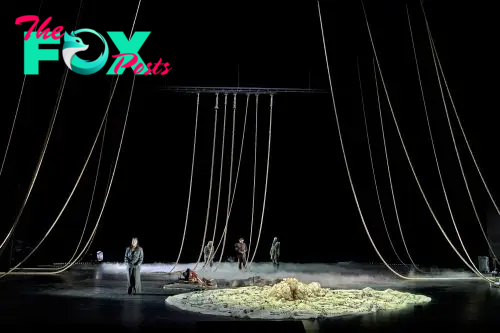
Manufacturing:
Director – Thorliefur Örn Arnarsson
Set design – Vytautas Narbutas
Costumes – Sibylle Wallum
Dramaturgy – Andri Hardmeier
Lighting – Sascha Zauner
Refrain director – Eberhard Friedrich
Forged:
Tristan – Andreas Schager
King Marke – Günther Groissböck
Isolde – Camilla Nylund
Kurwenal – Olafur Sigurdarson
Melot – Birger Radde
Brangäne – Christa Mayer
Shepherd – Daniel Jenz
Steersman – Lawson Anderson
Younger Sailor – Matthew Newlin
Virtually uniquely amongst operas (dramas, if we desire), Tristan und Isolde resists conceptualisation, even a lot in the best way of framing. Maybe not uniquely, however to a larger extent than some other. Any try and make Tristan ‘about’ something apart from what it’s intrinsically about appears doomed to fail. I proceed to reside in dread of the director who decides it’s someway ‘about’ immigration, Covid, or something pertaining to the exceptional world. So many, distrusting or just tired of music, appear incapable of sensing what it is involved with.
Put frankly, in case you are tired of music, it’s best to go away Tristan effectively alone. Its motion is inside; the outside is basically again story. For Wagner at his most Schopenhauerian, in aesthetics as a lot as ontology, the striving of the Will is the motion, to which music – not against, however as drama – as its illustration comes nearer than some other artwork kind or technique of expression. It’s the music drama wherein least could be misplaced if phrases and staging had been discarded. In actuality, of no matter form, that how we take heed to it, even when satisfied in any other case. At a sure level within the Act II love duet, it turns into tough, even unattainable, to have the phrases, fascinating, complicated, and telling although they could be, register in a single’s consciousness. Whether or not we name this the world of the noumenon, of night time, of Dionysus, or of Tristan, we in addition to the lovers are – or needs to be – there and never in its phenomenal, diurnal, Apollonian, operatic equal.
All very effectively, chances are you’ll say, however we do have phrases, we do have singers, we do have staging. Certainly we do, and so they – singers and staging, in a way phrases too – should work inside these realities, these creative truths. That needn’t be an issue; artwork thrives upon constraint of 1 kind or one other. (Ask Wagner’s antipode, Stravinsky.) Too usually, although, administrators don’t, maybe can’t, since they appear to have little sense of what this work is definitely involved with, nonetheless much less that it seemingly can’t be wrenched to be involved with anything. A sign function of Bayreuth’s new Tristan, which I noticed in its second efficiency, is that Thorliefur Örn Arnarsson appears to understand this, in concept and in follow, and furthermore to understand that this doesn’t negate however relatively invitations his work as director. There are circumstances, I feel, wherein he would possibly go additional on this course in paring down the extraneous – is there a greater mannequin than Wieland Wagner right here? – however this makes for an excellent begin and, following so many misfires, whether or not in Bayreuth or elsewhere, comes as an excellent aid.
Nietzsche wrote a great deal of arrant nonsense about Wagner, usually intentionally so, but in calling Tristan the opus metaphysicum, he was on the mark. Solely a few stagings I’ve seen, by Dmitri Tcherniakov (evaluate right here) and Peter Konwitschny in Munich, have provided critical problem to that and Konwitschny in significantly extra circumscribed style; they’re destined, I think, to stay exceptions. Anarsson’s manufacturing treads on safer floor, neither with out purpose nor with out benefit Furthermore, there may be to Anarsson’s work and to that of his collaborators, not least the excellent Semyon Bychkov as conductor, a way not solely of the noumenal however of the aesthetic.
Ship fanatics will discover themselves effectively catered for. Not solely the primary act however the complete drama has a ship as its setting. Vytautas Narbutas’s set designs evoke this powerfully, suggestively, and with out muddle — save, within the second act, the place the muddle is the purpose. Ropes principally do the trick within the first act, whose abiding visible motif is Isolde’s billowing wedding ceremony gown, additionally suggestive of sails. The phrases displayed – and simply as a lot, hid – on it from Wagner’s poem inform their very own story, particularly as she makes an attempt, with various success and maybe intent, to free herself from it. Anarsson sees no purpose really to visualise the love potion, understanding that it’s merely an emblem, not a trigger. I’ve no particularly robust emotions both method on that in precept; it’s merely an exterior manifestation. It felt barely odd, although – I realise this may occasionally appear considerably at odds with what I say above – as did the onset of what appeared like a sensible combat between Tristan and Melot on the finish of the second act, Melot wielding a sword, just for its end result to occur seemingly spontaneously. These objects and acts of the day maybe profit, if much less strongly than their counterparts within the Ring, from some form of visualisation.
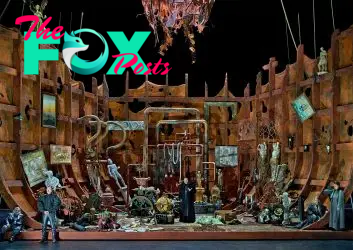
The second act strikes to the within of the ship, seemingly its core: the core, one would possibly say, of what motion there could also be. Its décor is fascinating, suggesting a lumber room strewn with objects which will in some sense have led us – which is to say Wagner, the work, these performing and in any other case experiencing it – there. Caspar David Friedrich’s presence is likely inevitable, and can at the least evoke recognition, although a part of me feels it’s time to give his extra celebrated pictures, like these of Monet and Klimt some time in the past, a interval of relaxation. The broader, unaggressive deconstruction of ‘civilisation’, western and maybe jap too, types a charming backdrop for the stage and finally the ‘actual’ motion. Cleared of that baggage, moved to a unique a part of (presumably) the identical ship, the third act unfolds in a ‘later’, barer atmosphere. It already feels too late, which in the obvious if not essentially the deepest sense, it’s. Lighting, or relatively its lack, all through appears supposed each to intensify but in addition to develop the distinction between night time and day. It reminds us that these will not be operatic characters; the purpose is just not essentially to watch them minutely. There are larger forces – finally, one nice, overwhelming pressure – at work.
Following the crude lack of course, steadiness, and tuning delivered to us two nights earlier by Oksana Lyniv within the lined pit, Bychkov’s work seemed like aural manna from heaven. He knew the way to work with the theatre and its explicit traits; past that, he knew the workings and expressive prospects of Wagner’s rating and communicated them in a studying that always took its time, particularly within the second act, but by no means dragged. The opening of the first-act Prelude – and its echo, in the direction of the top of the act – sounded extra superbly hushed than I can recall, but in no sense narcissistically; this was expectant, apparently imbued with information, albeit information that would not but be imparted, of the place the music would head, of what dramatically, within the fullest sense of the world, was at stake in melody, dissonance, and their penalties, all the time, if generally solely simply, inside a tonal framework. That was the story, wherein intensification of string vibrato may play as vital a task as overwhelming orchestral climax. Bychkov didn’t maintain again; his is just not Wagner that defers to the voice, nor to something apart from its personal musicodramatic necessities. He nonetheless helped liberate the voice’s expressive potential, even when vocal realities fell in need of the perfect.
I didn’t really feel that so strongly as a few individuals I’ve spoken to since and surprise how a lot of that may be ascribed to seating within the theatre (as effectively, maybe, as to aesthetic priorities). Seated in the back of the stalls, I could have benefited from the therapeutic balm of the Bayreuth acoustic. That stated, Andreas Schager’s Tristan, for stretches of the efficiency possessed of lots of this Heldentenor’s acquainted qualities, additionally skilled difficulties. Stability within the second-act duet was generally awry with Camilla Nylund’s Isolde, who at instances additionally appeared stretched, if extra in coMMAnd of her half. A level of abandon is, in fact, no unHealthy factor; Schager’s efficiency, nonetheless, got here into and went out of focus a bit of too usually and have become unusually disjunct within the third act, as if the trouble to sing extra softly, to supply a extra variegated studying, made it tougher to take care of his line in any respect.
Christa Mayer’s Brangäne was, against this, every little thing it ought to have been: heat, sustained, clever, and in addition to built-in as any orchestral line. Günther Groissböck’s snarling Marke appeared to be making a play to come back throughout as extra merciless, even vindictive, than one would possibly anticipate; this emerged as one thing of a work-in-progress. If a bit of bluff, even gruff at instances, Olafur Sigurdarson had what it took for Kurwenal. The smaller roles had been all effectively taken, Birger Radde’s ambivalent Melot, Daniel Lenz’s sweetly sung Shepherd, and Matthew Newlin’s clear-toned Sailor all standing out, while taking their place within the larger ensemble. The latter was finally what mattered and which, shortcomings apart, made this a satisfying and sometimes transferring complete.
Mark Berry
-

 Entertainment58m ago
Entertainment58m agoGladiator II Belongs to Denzel
-
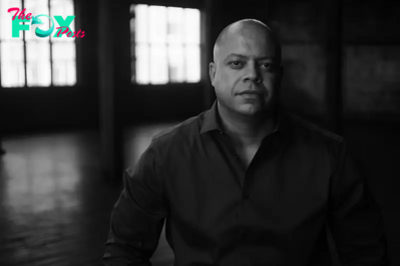
 Entertainment58m ago
Entertainment58m agoJJ Velazquez on Finding Freedom, From Sing Sing to Sing Sing
-
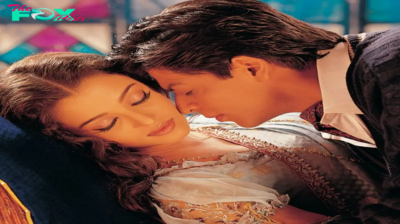
 Entertainment5h ago
Entertainment5h ago13 Most Romantic Movies Based on Novels
-

 Entertainment6h ago
Entertainment6h agoThe Monkey Is the Secret Hero of Gladiator II
-
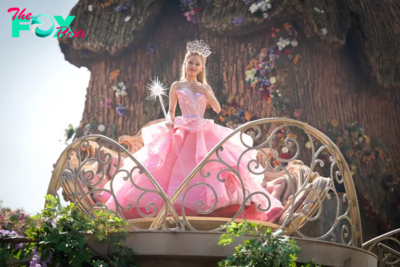
 Entertainment6h ago
Entertainment6h agoHow Wicked Connects to The Wizard of Oz
-

 Entertainment8h ago
Entertainment8h agoWhere Is Yellowstone’s Kelly Reilly From? Fans Shocked When She Reveals Real Accent
-

 Entertainment8h ago
Entertainment8h agoWhy Is the ‘Wicked’ Movie Split in 2 Parts? Director Jon M. Chu Explains Reasoning
-

 Entertainment11h ago
Entertainment11h agoAll About That Major Surprise Cameo in the Wicked Movie


